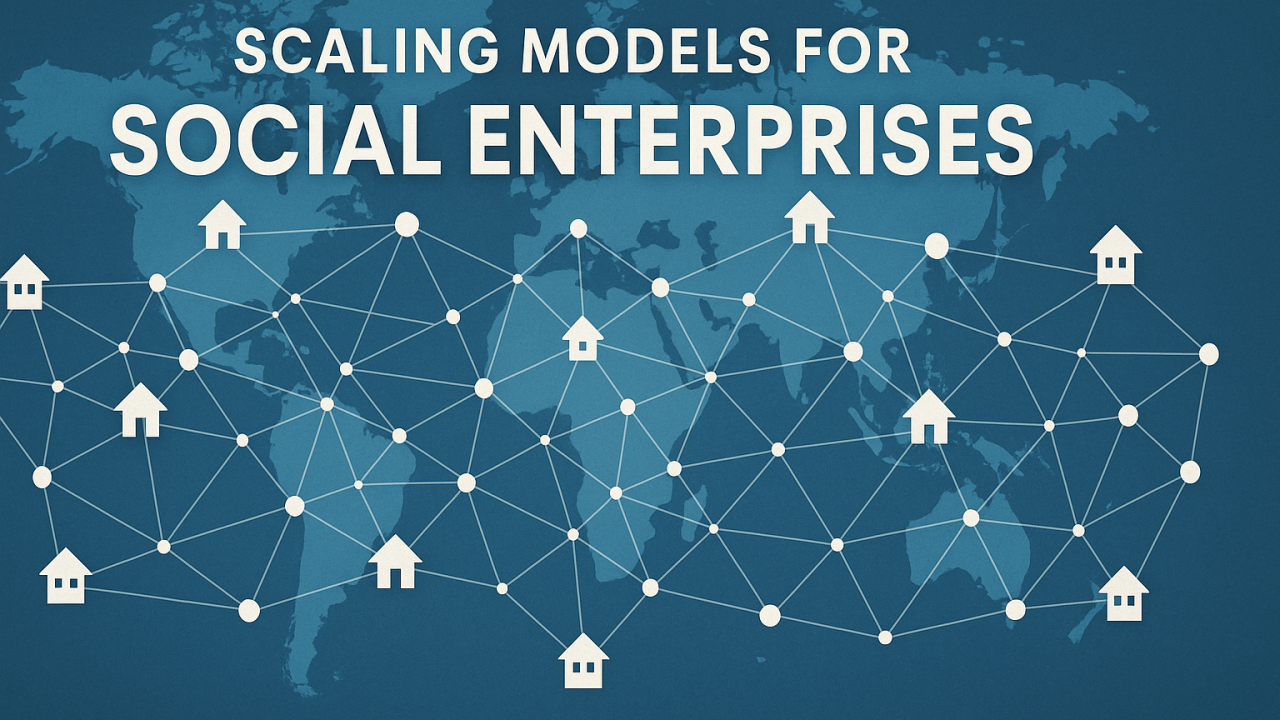Leonardo Cunha
Conexão de 1º grau1º
Liderança | Empreendedorismo | Gestão | Planeamento | Estratégia | Escrita para Financiamento | Especialista em financiamento para desenvolvimento | Orador internacional
Social businesses have emerged as powerful instruments for addressing societal challenges, fostering community empowerment, and delivering long-term sustainable impacts. As these enterprises grow, one critical aspect ensuring their longevity and effectiveness is adopting robust scaling models. Such models not only guarantee immediate impact but also establish a lasting legacy through strategic planning and expansion into new localities and regions.
Scaling, in this context, refers to expanding a business’s social impact more significantly and efficiently, reaching larger populations or diverse geographical areas (Bloom & Chatterji, 2009). Unlike traditional businesses, social enterprises face unique challenges and opportunities when scaling, due primarily to their dual objectives of achieving social missions and maintaining financial sustainability.
A key component of successful scaling models for social businesses involves meticulous long-term planning systems that transcend immediate outcomes. According to Dees, Anderson, and Wei-Skillern (2004), scaling social impact demands both qualitative and quantitative assessments to ensure replicability and adaptability across various contexts. Organizations must define clear and measurable outcomes, continuously monitor progress, and refine strategies based on the data gathered.
Effective scaling processes also necessitate robust community engagement and participatory approaches. This means involving local stakeholders from new regions early in the planning process, thus ensuring alignment with community needs and fostering local ownership of projects (Mulgan, 2006). Community participation not only enriches the planning process but also significantly enhances the sustainability and adaptability of social interventions.
Moreover, partnerships and collaborative frameworks are essential in scaling efforts. By collaborating with other organizations, including NGOs, government entities, and private sector partners, social businesses can leverage complementary strengths, secure additional resources, and amplify their reach (Weber, Kröger, & Lambrich, 2015). Such collaboration ensures that scaling initiatives are not isolated ventures but integral parts of broader social impact ecosystems.
For social businesses aiming to achieve sustainable and expansive impact, adopting comprehensive and strategic scaling models is essential. These models must integrate long-term planning, robust community engagement, and strategic partnerships. Through such an approach, social businesses can effectively replicate their success, ensuring their programs leave lasting legacies and meaningful impacts on communities across multiple regions.
References
Bloom, P. N., & Chatterji, A. K. (2009). Scaling social entrepreneurial impact. California Management Review, 51(3), 114-133.
Dees, J. G., Anderson, B. B., & Wei-Skillern, J. (2004). Scaling social impact. Stanford Social Innovation Review, 1(4), 24-32.
Mulgan, G. (2006). The process of social innovation. Innovations: Technology, Governance, Globalization, 1(2), 145-162.
Weber, C., Kröger, A., & Lambrich, K. (2015). Scaling social enterprises–a theoretically grounded framework. Frontiers of Entrepreneurship Research, 35(16), 1-15.


